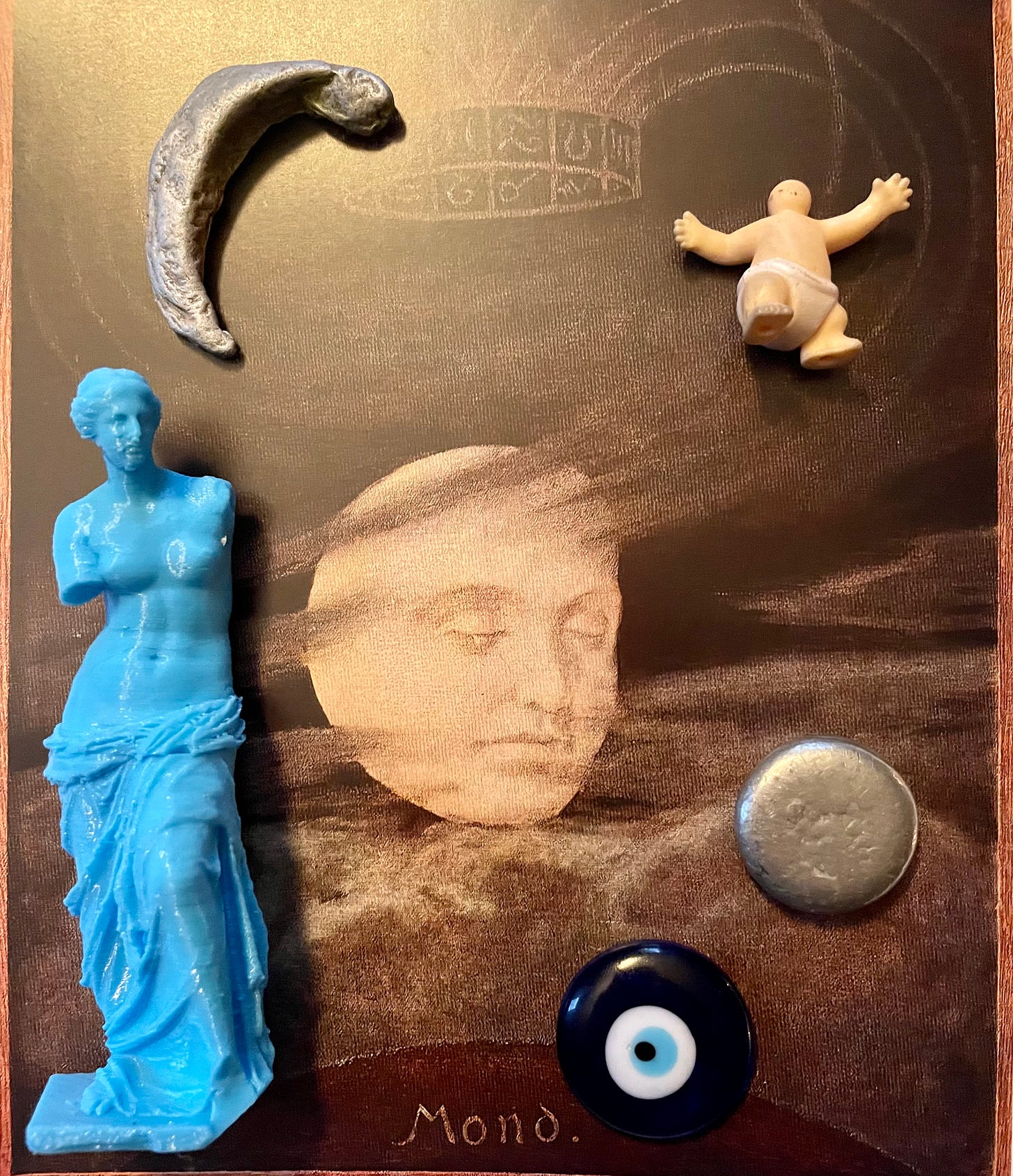The moon is not only the mother
On lunar goddesses, friends without kids, and Ursula K. Le Guin's apology to Joanna Russ, all in honor of the New Moon in Cancer.

The lunar goddesses have children. The lunar goddesses have no children at all. Selene, goddess of the full moon and guardian of pregnancy, had fifty some children. Artemis, goddess of the crescent moon and protector of women through childbirth and abortions, had none. Hekate, goddess of the dark moon and patron of the childless but also of children themselves, gave birth, but mostly, it seems, to monsters and witches, singular figures of power or fate who, at the end of the day, perhaps wished their mother had been or had chosen to be as “barren” as those she protected.
We’re so used to the pat cultural associations of the moon with the saccharine or abject figures of some archetypal mother we forget the human myths that have enchanted our nightly luminary for centuries take a wider, stranger, more complicated view of what we humans deem acceptable feminine experience, as we can see even simply within a brief survey of the Greek system of spirituality and belief.1 That forgetfulness is our loss, and it shows in the contemporary discourse today around women’s choices to have children or to be childfree, as well as the ways in which this surface-level conversation is mobilized by both left and right2 to distract from deeper, more important discussions (never mind societal change) around how to better infuse all of our lives with meaningful relationships, communities, work, care, and interests.3
*
Most of my closest friends have chosen not to have children. I’ve got one kid with another on the way. But our seemingly opposed reproductive choices have not, so far, created the chasm I see described in cultural conversations online, in literature, in the astrological horoscope itself.

